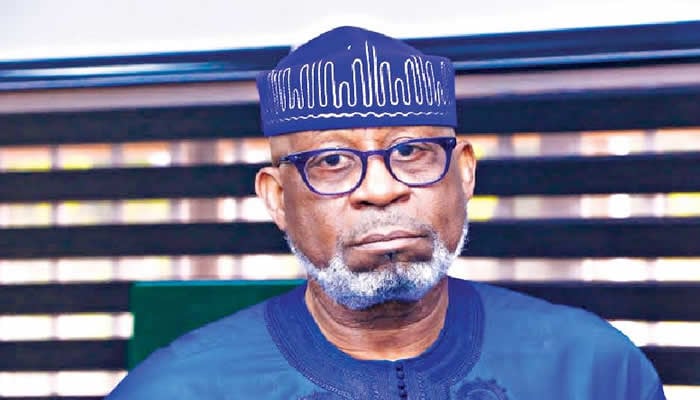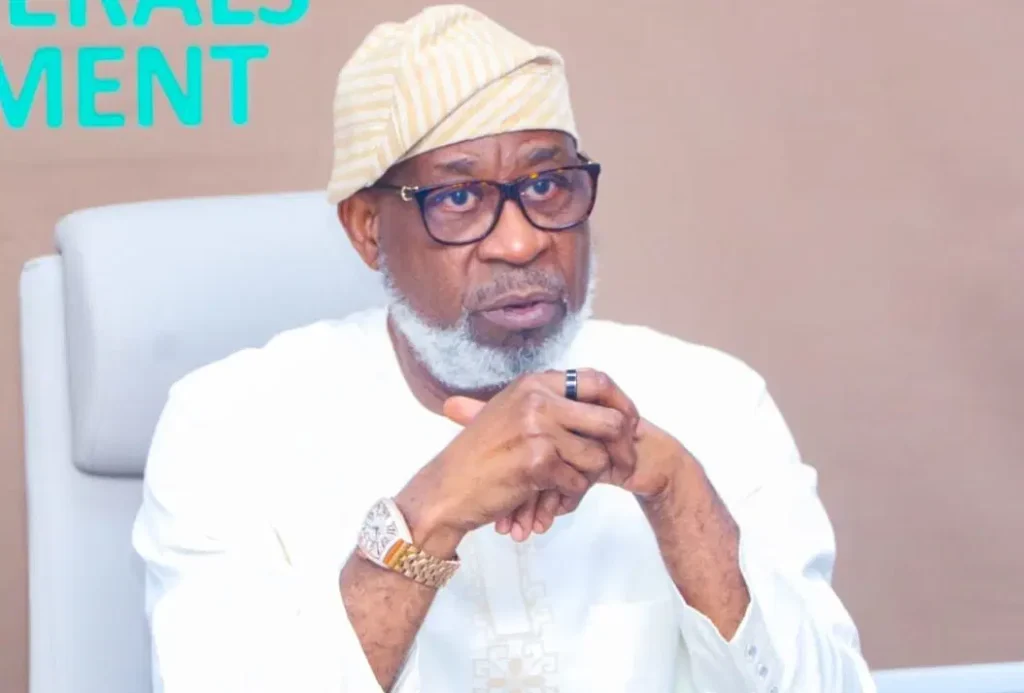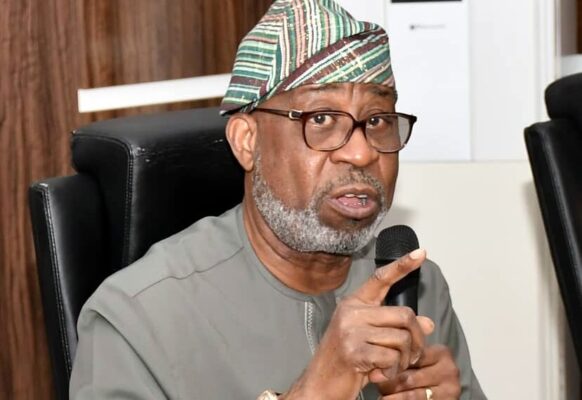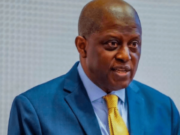The Minister of Solid Minerals Development, Dr. Dele Alake, has called for the immediate closure of schools in Nigeria that charge tuition fees in foreign currencies such as the dollar or pound sterling.
Speaking in Abuja on Wednesday during the Nigeria Gold Day Celebration, held alongside the 10th edition of Nigeria’s Mining Week, themed “Nigeria Mining: From Progress to Global Relevance,” Alake described the trend as a dangerous economic practice capable of undermining national growth and further weakening the naira.
He said such acts represent what he termed “economic leakages and loopholes” — channels through which Nigeria continues to lose value and stability.
“I am still going to make a proposal to the Federal Executive Council that all those schools in Nigeria that are charging in foreign currencies should be closed,” the minister declared.
“These are part of the leakages and loopholes that exist in our economy which people do not take seriously.”

Table of Contents
Economic Consequences of Foreign-Currency Fees
Alake explained that when Nigerian parents are compelled to pay school fees in dollars or pounds within the country, they have to buy those currencies from the open market, thus increasing the pressure on the naira and contributing to its depreciation.
“If your child is attending a school in Abuja or Lagos and the school charges £10,000 or $10,000, you’ll be forced to look for naira to buy foreign currency,” he said. “That process drives up the value of the dollar artificially, even though the school operates right here in Nigeria.”
The minister expressed frustration over what he described as “economic contradictions” in the system, questioning why institutions in Nigeria would insist on collecting fees in foreign denominations while being registered and operating under Nigerian laws.
“You can’t go to the United Kingdom, open a school, and start charging in naira,” Alake noted. “It’s only in this country that we allow things like this that demolish our economy.”
His comments highlight growing public concern over the rising cost of education in Nigeria, particularly in private and international schools that peg fees against fluctuating foreign exchange rates.

Government Moves to Strengthen the Economy
Beyond his critique of schools charging in dollars and pounds, Dr. Alake used the platform to outline the federal government’s broader economic reform plans. He said the government is implementing digital systems to plug leakages in Nigeria’s gold value chain and strengthen transparency in the mining sector.
He added that reducing interpersonal cash transactions would help curb corruption and ensure the country benefits fully from its natural resources.
According to the minister, one of the key programmes driving this transformation is the National Gold Purchase Programme (NGPP), implemented through the Solid Minerals Development Fund (SMDF). The initiative allows the federal government to buy gold directly from artisanal miners using the naira — a strategy aimed at boosting Nigeria’s foreign reserves, supporting the value of the naira, and reducing the demand for foreign exchange.
“Under the National Gold Purchase Programme, which is part of the Presidential Artisanal Gold Mining Initiative, the government buys gold in naira from local miners. This approach reduces the pressure on our foreign exchange reserves while promoting local value addition,” he explained.
Alake said such initiatives reflect President Bola Ahmed Tinubu’s administration’s commitment to diversifying the economy and building resilience against global economic shocks.

A Call for Economic Discipline and Policy Alignment
Dr. Alake’s comments have drawn attention to the need for stronger policy enforcement and economic discipline across different sectors. Analysts note that while his proposal may be controversial, especially among international schools and expatriate-owned institutions, it highlights a key policy debate — how to balance private enterprise freedom with national economic stability.
Education experts argue that many private and international schools peg their fees to foreign currencies because of operational costs linked to foreign staff, imported materials, and affiliations with overseas institutions. However, critics believe that this practice has become exploitative and discriminatory against middle-class Nigerians struggling with currency depreciation.
If the Federal Executive Council adopts Alake’s proposal, it could lead to a sweeping regulatory reform across the education sector. Schools operating within Nigeria’s borders would have to align their fee structures strictly to the naira, ensuring that financial transactions within the country reflect its legal tender.
The move would also signal the government’s intent to restore the naira’s value and credibility as the only acceptable currency for domestic transactions.
“We must take bold steps to protect our economy from internal sabotage,” Alake concluded. “Every naira that leaks out through unnecessary foreign currency transactions weakens our collective prosperity. Nigeria must learn to respect its own currency.”
As Nigerians continue to face rising inflation and fluctuating exchange rates, the minister’s statement has sparked renewed conversations about the country’s economic priorities and the urgent need for structural discipline.
Whether the government will take concrete action to implement the closure of foreign-currency-charging schools remains to be seen. But one thing is clear — the conversation about economic sovereignty and national accountability has only just begun.
Join Our Social Media Channels:
WhatsApp: NaijaEyes
Facebook: NaijaEyes
Twitter: NaijaEyes
Instagram: NaijaEyes
TikTok: NaijaEyes
READ THE LATEST EDUCATION NEWS














![Mr Macaroni Drops Blistering Remark: ‘APC Filled with Most Corrupt People’ as He Slams Tinubu’s Controversial Pardon for Criminals=]] Mr Macaroni](https://naijaeyesblog.com/wp-content/uploads/2025/03/Mr-Macaroni-1-1-180x135.avif)

![Chaos Erupts in Abuja Hotel as BBNaija Star Phyna Sparks Fierce Scene Over Alleged N200,000 Dispute [VIDEO] Phyna](https://naijaeyesblog.com/wp-content/uploads/2024/11/A-Picture-of-Phyna-BBNaija-180x135.jpg)






















